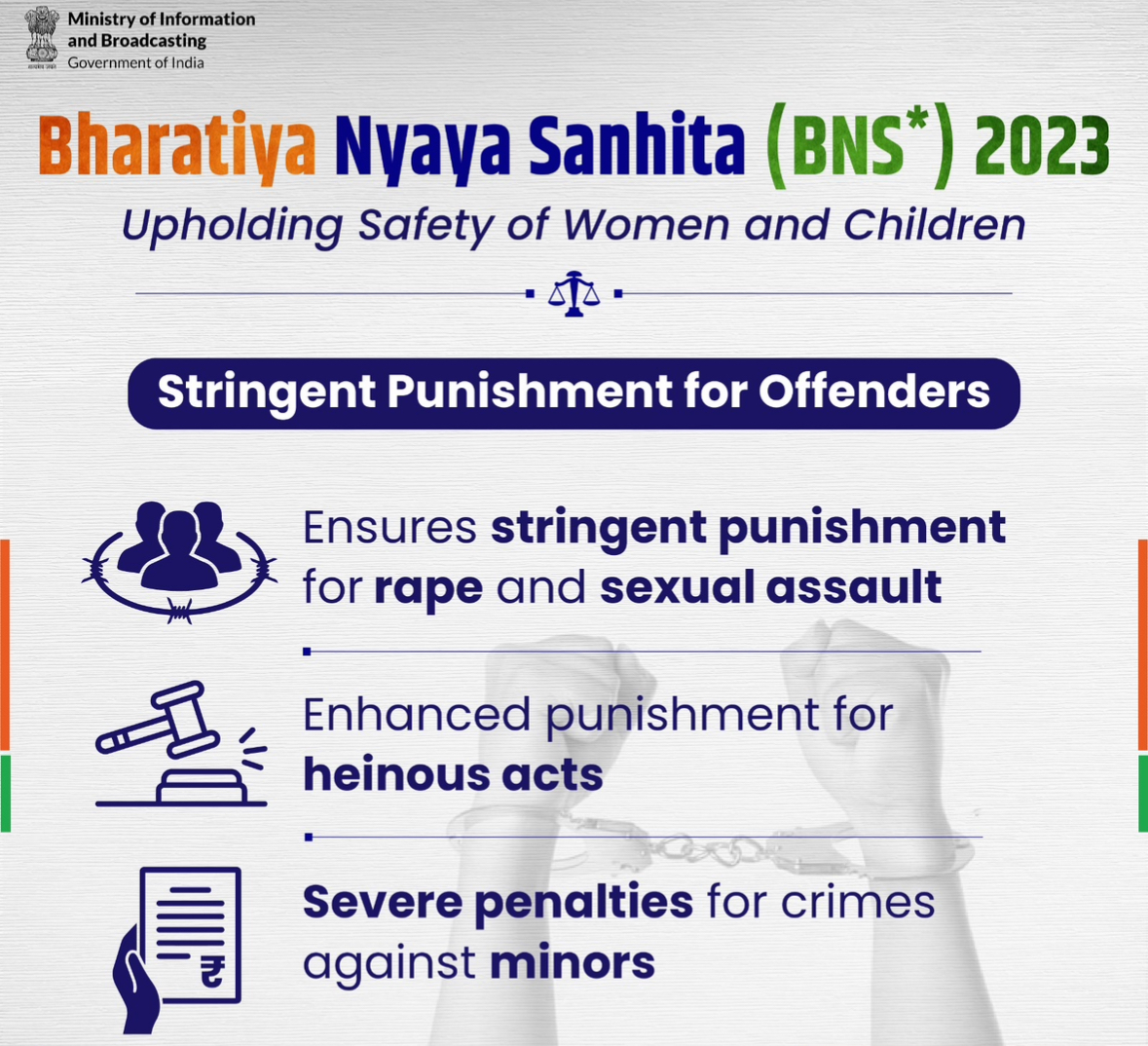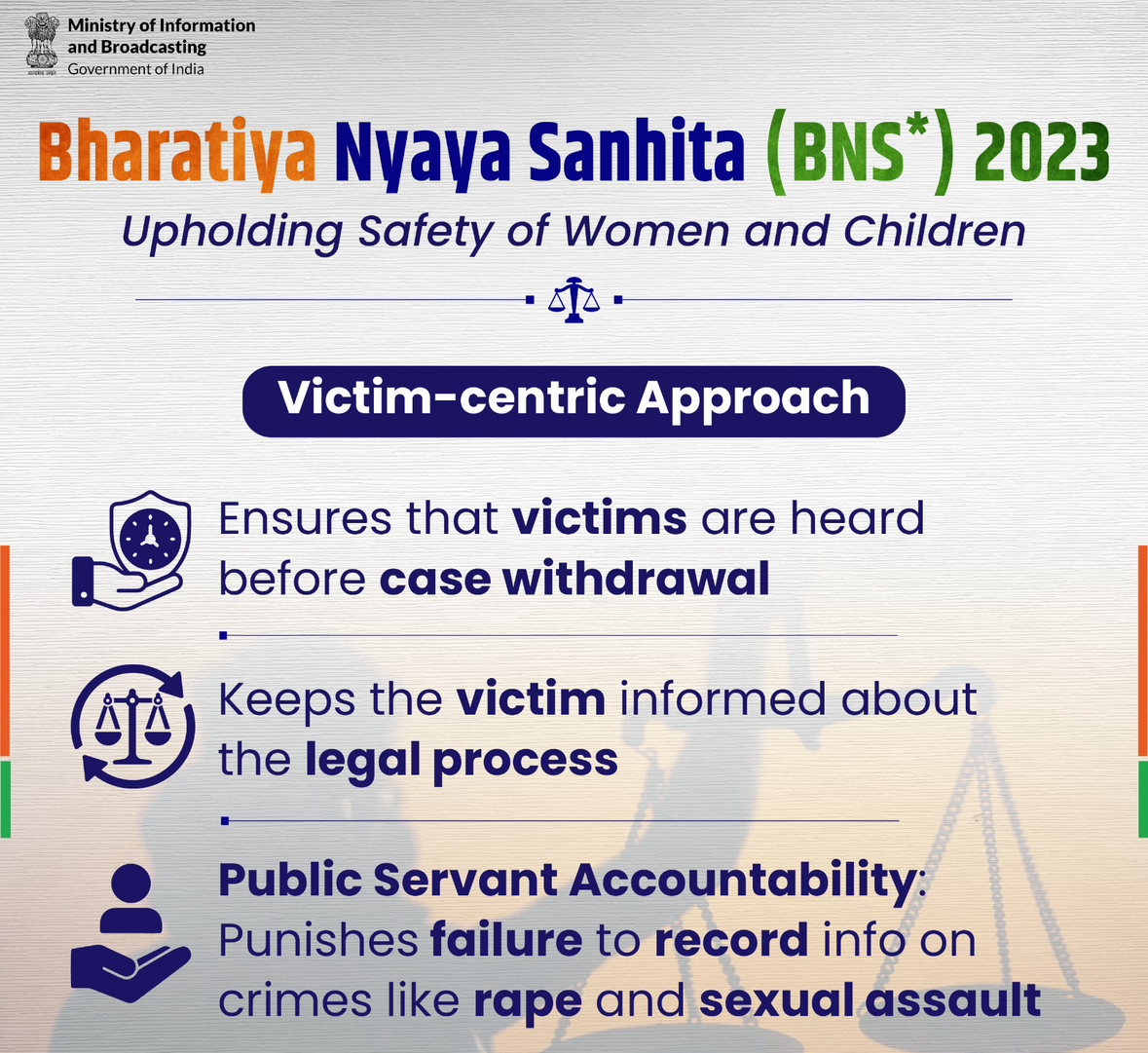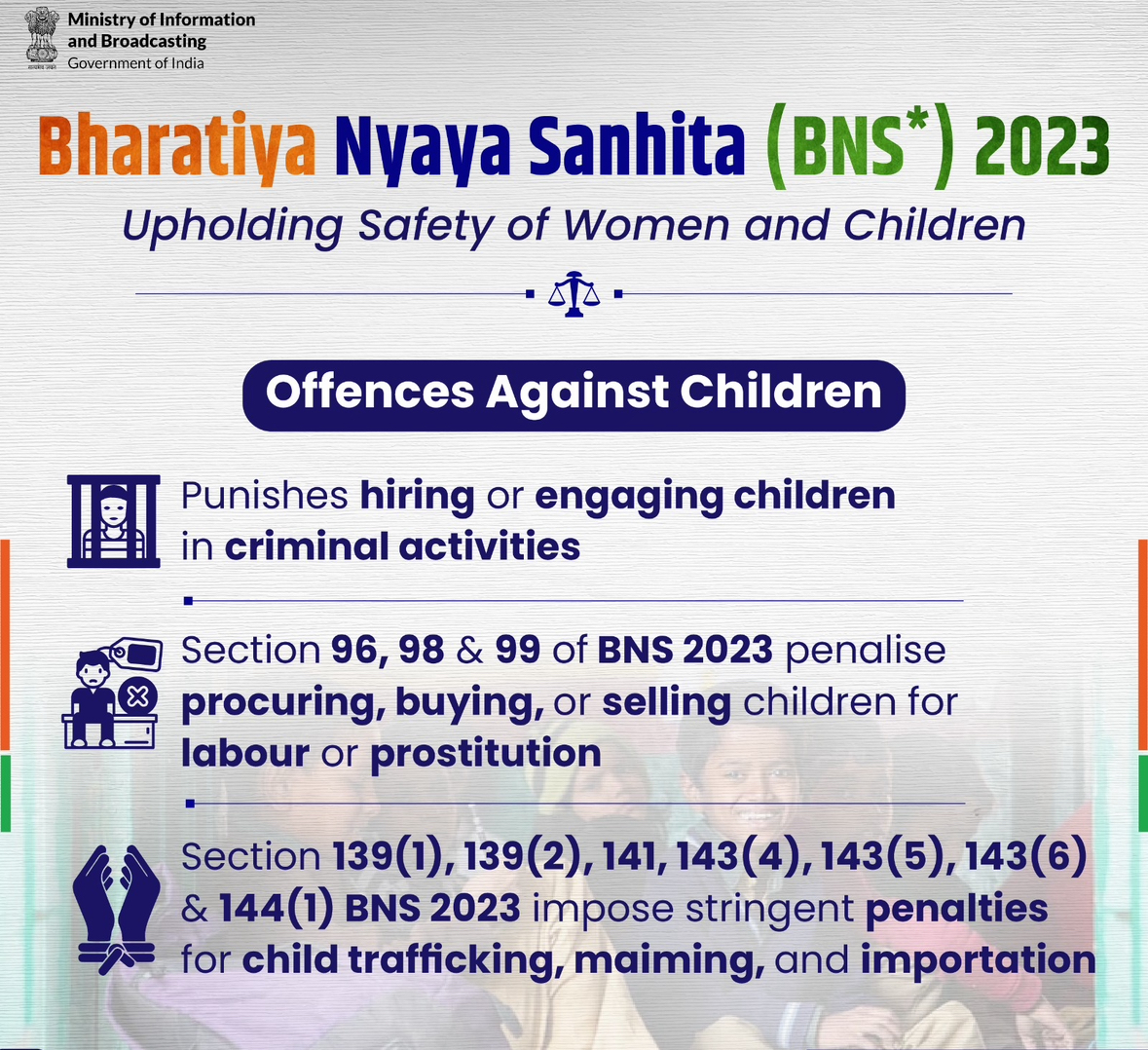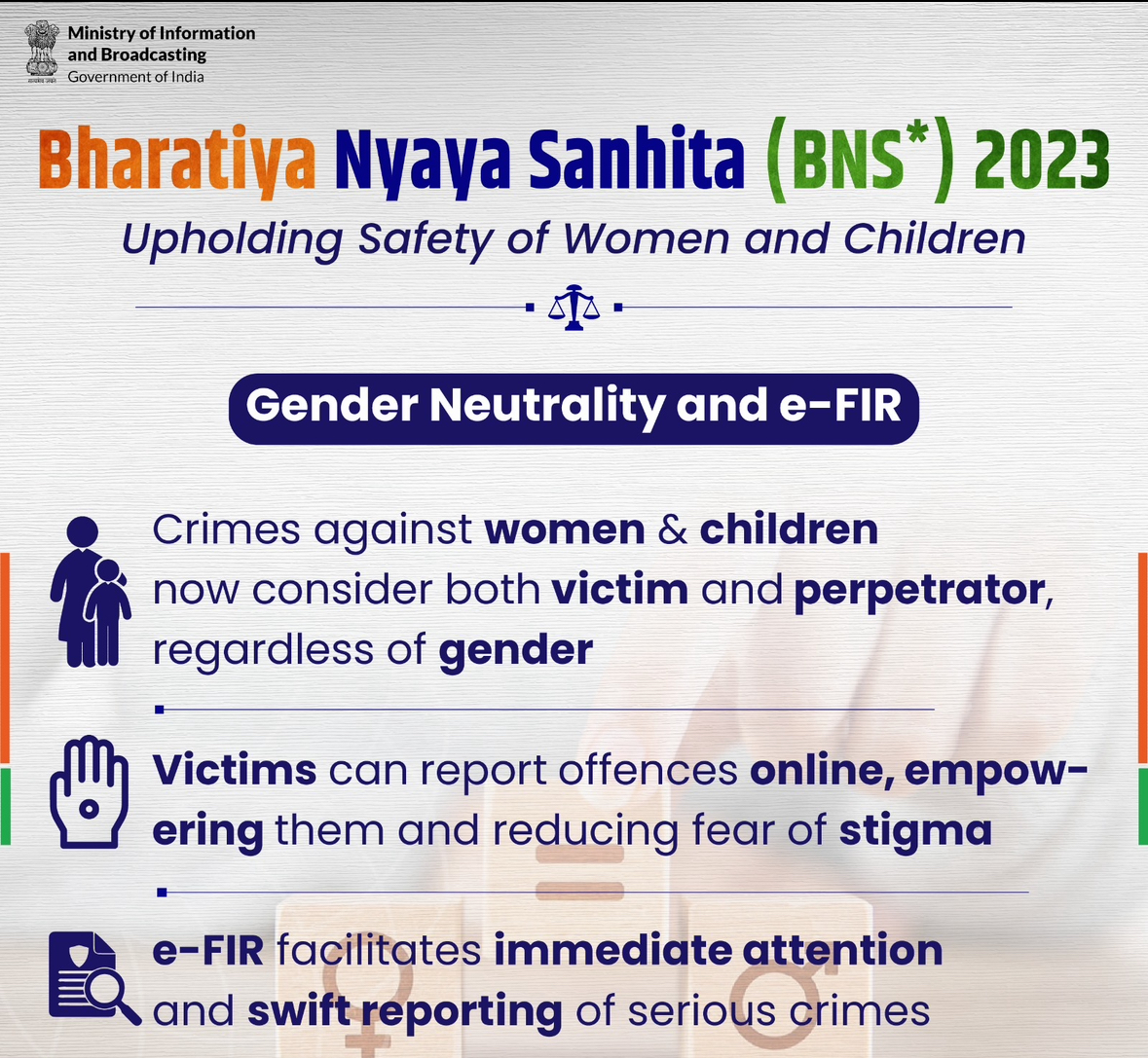The Bharatiya Nyaya Sanhita (BNS) 2023 marks a significant shift in India's legal framework, prioritising the safety and well-being of women and children. This article explores the key provisions introduced by the BNS to ensure stricter punishments for offenders and a more victim-centric approach to the justice system.
New Laws Strengthen Protections for Women's Rights
New legislation bolsters protections for women's rights. Stringent provisions aim to ensure their safety and well-being. While the concept of "honour" can be culturally specific, these laws strive for a society where women are free from violence and discrimination.
_1719667718.png)
Female Officers to Record Rape Statements, Empowering Victims
New legislation bolsters protections for women's rights. Stringent provisions aim to ensure their safety and well-being. Notably, the law mandates recording rape victim statements by female officers whenever possible, and otherwise in the presence of a chosen guardian or relative. This focus on a sensitive and supportive environment empowers victims to come forward.
_1719573637.png)
Stringent punishment for offenders

The BNS takes a firm stance against crimes against women. It mandates enhanced penalties for perpetrators of heinous acts, particularly those involving sexual assault and rape. The inclusion of life imprisonment or even the death sentence for exceptionally brutal crimes against girls under 18 further emphasises this commitment to women's safety.
Victim-Centric Approach

The BNS recognises victims as crucial stakeholders in the legal process. A crucial clause ensures that victims are heard before their cases are withdrawn, allowing them to actively pursue justice. Additionally, victims have the right to receive free information about the legal proceedings and a copy of the FIR. This fosters transparency and reduces anxieties associated with the judicial system. Moreover, Section 199(c) criminalises public servants for neglecting to document crimes against women, guaranteeing the documentation of crucial details.
Offences Against Children

The BNS extends its protective measures to children, too. Section 95 specifically penalises the exploitation of children, targeting those who hire or employ them for criminal activities. Sections 96, 98, and 99 further strengthen this protection by criminalising activities such as procuring children for labour or prostitution. Additionally, sections 139(1) to 144(1) address trafficking, maiming, and the importation of children with stringent punishments.
Gender Neutrality and e-FIR

The BNS adopts a gender-neutral approach to various offences, ensuring equal protection for both male and female victims and holding perpetrators accountable regardless of their gender. Furthermore, the introduction of e-FIR empowers victims to report crimes online, potentially reducing the stigma associated with seeking help. This streamlined reporting system facilitates prompt action by authorities in situations that demand immediate intervention.
In conclusion, the BNS 2023 serves as a crucial step towards a safer environment for women and children in India. The emphasis on stricter penalties, victim-centricity, and improved reporting mechanisms reflects a commitment to creating a strong legal framework that safeguards the most vulnerable members of society.
FOR MORE:https://vygrnews.com/news-preview/india-news/newcriminallawsinindiatoutilisetechnologyforefficiency
With inputs from agencies
Image Source: MIB
© Copyright 2024. All Rights Reserved Powered by Vygr Media.





















